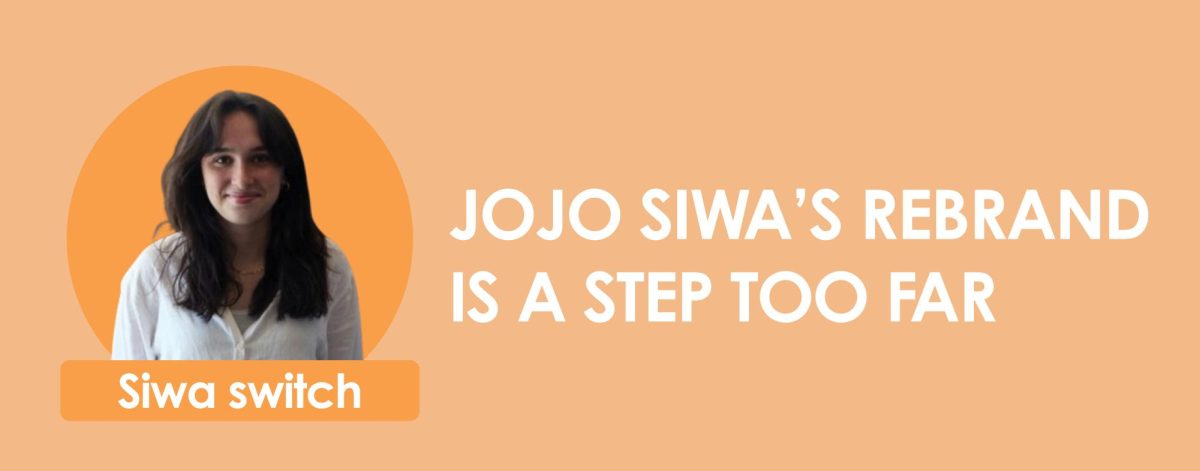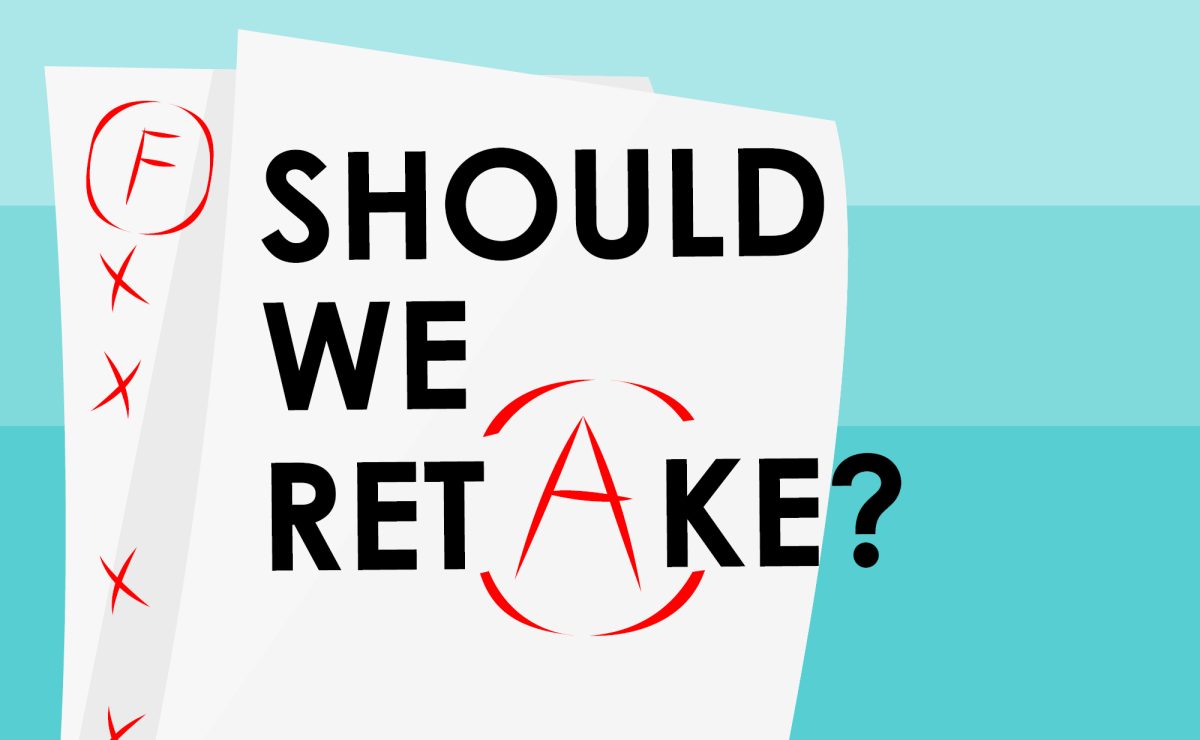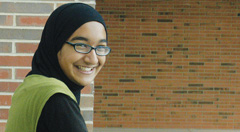 I’ve never known much about my vision. From the day I proudly showed off my new glasses to my neighbors in second grade, I only knew that I was badly near-sighted and that my glasses made everything crystal clear again. In fact, I never even knew what my prescription was until this October. It was around this time that I got contact lenses for the first time, and my doctor mentioned that my contacts would be slightly more expensive because in addition to my terrible vision, I have astigmatism. I nodded like I understood, but in my head, I thought, “I have what?”
I’ve never known much about my vision. From the day I proudly showed off my new glasses to my neighbors in second grade, I only knew that I was badly near-sighted and that my glasses made everything crystal clear again. In fact, I never even knew what my prescription was until this October. It was around this time that I got contact lenses for the first time, and my doctor mentioned that my contacts would be slightly more expensive because in addition to my terrible vision, I have astigmatism. I nodded like I understood, but in my head, I thought, “I have what?”
I didn’t have astigmatism—did I? Well, I wasn’t sure what astigmatism actually was, but it sounded serious, and after eight years, wouldn’t I know if I had a severe eye condition? The truth was, I never had to worry about it as long as I could slip on my glasses and go about the day with perfect vision.
Unfortunately, not all health problems should be resolved with so little thought on the part of the patient. Our doctors are highly trained and can make educated recommendations for our well-being. However, given all the information and medical jargon they throw at us in the space of a short appointment, it is not surprising that much of it slips between the cracks. And when we fail to understand the conditions of our health and follow instructions blindly, we lose ownership of our health and risk our well-being. And I’m not the only one with this problem.
In May 2010, the U.S. Department of Health and Human Resources announced the National Action Plan to Improve Health Literacy, a plan based on research over the past few decades, which showed that millions of Americans have limited understanding of health information. Researchers at the University of Connecticut found in 2007 that 36 percent of Americans have low health literacy. According to the National Patient Safety Foundation (NPSF) these people make more mistakes with treatment or medication, have higher hospitalization rates and pay an average of $7500 more in annual medical costs. They are at far higher risk of falling prey to false medical advertising, and they have difficulty acquiring proper healthcare coverage. With less ability to know what’s wrong and how to treat it, people with limited health literacy have lower well-being overall.
Part of the reason for this shortfall is the unintelligible nature of much health terminology and advertising, as well as increasingly complex health systems. Despite these shortcomings of doctors and medical professionals, patients still have the responsibility to make sure they know about their health problems as well. However, patients often don’t understand instructions the first time a doctor explains them, and they feel too embarrassed to ask questions. For us minors, it is all too easy to entrust the understanding of our health conditions to our parents. At every doctor’s appointment since childhood, it seems that once the conversation became difficult to follow, I resorted to flipping through magazines or staring at paintings of happy giraffes on the wall, letting my parents sort through the details of what exactly was wrong with me and how to fix it.
Yet this habit of mine cannot be sustained. In the near future, I will have to make decisions about my health for myself, without the guidance of my parents. In the end, it will be me who has to keep track of medications, me who has to care for that broken bone, me who decides whether to get that surgery. The world of medicine is a maze of changing information and contradicting opinions, but it is up the patient to get accurate information.
This can be as easy as asking questions. Ask your doctor how exactly a medication schedule works, or ask him to translate the medical jargon into words you understand. Repeat back his instructions to him, so you can be sure you know what to do. Outside of the doctor’s office, there is also a wealth of resources on the Internet that can help patients understand medical terms and conditions. The websites of the NPSF, the American Medical Association, the National Library of Medicine and other health-related organizations provide health information on their websites, so patients have the world of medical research at their fingertips. By using these resources, you can tell if something is wrong, you can take full advantage of the medical care offered to you and you can ensure your own understanding.
While it is far simpler to rely on the suggestions of our doctors and the decisions of our parents, it is more important to have an independent knowledge of your health issues. Don’t walk away from the hospital wondering what a comminuted fracture of the calcaneus is; find out that it’s a shattered heel bone. Don’t sign up for an expensive surgery without full knowledge of the benefits and the risks. Don’t assume for eight years as I did that you couldn’t have astigmatism because you think it’s just for old people. Make yourself the expert on your health problems. Take ownership of your health.





















































![Review: “Suits” is a perfect blend of legal drama and humor [MUSE]](https://hilite.org/wp-content/uploads/2024/04/unnamed-1.png)
![Chelsea Meng on her Instagram-run bracelet shop [Biz Buzz]](https://hilite.org/wp-content/uploads/2024/04/IMG_2446-1200x838.jpg)
![Review: Quiet on Set: The Dark Side of Kids TV is the long awaited exposé of pedophilia within the children’s entertainment industry [MUSE]](https://hilite.org/wp-content/uploads/2024/04/unnamed.jpg)
![Review: “The Iron Claw” cannot get enough praise [MUSE]](https://hilite.org/wp-content/uploads/2024/04/unnamed.png)
![Review: “The Bear” sets an unbelievably high bar for future comedy shows [MUSE]](https://hilite.org/wp-content/uploads/2024/03/unnamed.png)
![Review in Print: Maripaz Villar brings a delightfully unique style to the world of WEBTOON [MUSE]](https://hilite.org/wp-content/uploads/2023/12/maripazcover-1200x960.jpg)
![Review: “The Sword of Kaigen” is a masterpiece [MUSE]](https://hilite.org/wp-content/uploads/2023/11/Screenshot-2023-11-26-201051.png)
![Review: Gateron Oil Kings, great linear switches, okay price [MUSE]](https://hilite.org/wp-content/uploads/2023/11/Screenshot-2023-11-26-200553.png)
![Review: “A Haunting in Venice” is a significant improvement from other Agatha Christie adaptations [MUSE]](https://hilite.org/wp-content/uploads/2023/11/e7ee2938a6d422669771bce6d8088521.jpg)
![Review: A Thanksgiving story from elementary school, still just as interesting [MUSE]](https://hilite.org/wp-content/uploads/2023/11/Screenshot-2023-11-26-195514-987x1200.png)
![Review: When I Fly Towards You, cute, uplifting youth drama [MUSE]](https://hilite.org/wp-content/uploads/2023/09/When-I-Fly-Towards-You-Chinese-drama.png)
![Postcards from Muse: Hawaii Travel Diary [MUSE]](https://hilite.org/wp-content/uploads/2023/09/My-project-1-1200x1200.jpg)
![Review: Ladybug & Cat Noir: The Movie, departure from original show [MUSE]](https://hilite.org/wp-content/uploads/2023/09/Ladybug__Cat_Noir_-_The_Movie_poster.jpg)
![Review in Print: Hidden Love is the cute, uplifting drama everyone needs [MUSE]](https://hilite.org/wp-content/uploads/2023/09/hiddenlovecover-e1693597208225-1030x1200.png)
![Review in Print: Heartstopper is the heartwarming queer romance we all need [MUSE]](https://hilite.org/wp-content/uploads/2023/08/museheartstoppercover-1200x654.png)























![Review: Ladybug & Cat Noir: The Movie, departure from original show [MUSE]](https://hilite.org/wp-content/uploads/2023/09/Ladybug__Cat_Noir_-_The_Movie_poster-221x300.jpg)

![Review: Next in Fashion season two survives changes, becomes a valuable pop culture artifact [MUSE]](https://hilite.org/wp-content/uploads/2023/03/Screen-Shot-2023-03-09-at-11.05.05-AM-300x214.png)
![Review: Is The Stormlight Archive worth it? [MUSE]](https://hilite.org/wp-content/uploads/2023/10/unnamed-1-184x300.png)


